With everything else that’s going on at the moment – not to mention the day to day stresses of looking after a family – tackling climate change may not feel like your number one priority at the moment. But research shows that many children and young people are worried about the state of the planet, and some can become very anxious as a result. When children and young people learn about the seriousness of the climate emergency, and at the same time don’t see action from adults to tackle it, they can become worried, frustrated or angry.
The good news is that as a parent, grandparent or other adult who cares about children, you can play a key role in helping children and young people deal with how they feel about climate change, and it might help us all to know that Scotland is taking action on it. Here are our top tips for meeting children and young people’s questions and feelings about climate.
What is the climate emergency?
Climate change is one of the biggest threats to our future. The temperature of the planet is rising, largely due to carbon emissions and other greenhouse gasses produced by human beings. And there are real consequences to this. If global temperatures keep rising at the same rate as they have been, the increase in heat will drive regional and seasonal temperature extremes, reduce snow cover and sea ice, intensify heavy rainfall, and change or destroy habitat ranges for plants and animals. This will change our planet in ways that’ll affect us all. In Scotland, we’re already seeing the impacts. Over the past few years we’ve experienced high rainfall, flooding and extremely high winter temperatures.
In order to tackle this, we all need to work together to reduce emissions. It’s up to everyone – from governments and businesses to individual people – to take action.
What are we doing in Scotland to tackle the climate emergency?
Scotland has set an ambitious target to become 'Net Zero' by 2045. This means the amount of greenhouse gas emissions we put into the atmosphere – and the amount we're able to take out – will add up to zero. Being 'Net Zero' will help transform the way we live for the better, making Scotland a healthier, cleaner, safer, fairer place for us and for generations to come.
You can find out more about this and what you can do to help at the Net Zero Nation website.
There’s also a plan to help prepare or ‘adapt’ Scotland to the effects of climate change over the next five years. Lots of different people, groups and organisations from across Scotland will be working together to carry out the changes in the plan, and there are also ideas for ways we can all play a part in adapting to climate change. You can download a children and young people’s guide to Scotland’s National Adaptation Plan in English or Gaelic here and have a look at it together.
Tips for talking to your children about the climate emergency
Tip #1: Be informed

If you haven’t already done so, it can really help you have informed conversations with your kids if you read up a bit about the climate emergency. A good place to start is the Net Zero Nation website. This article from the BBC also provides a useful introduction.
You could even download a climate change conversation pack from the Net Zero Nation website to help you get started.
Tip #2: Talk to other adults before talking to your kids
Thinking about climate change can make adults feel just as anxious, frustrated and powerless as children and young people. So it’s a good idea to talk through your feelings with a partner or friend before talking to your children, to make sure you don’t pass any fears on to your children.
Tip #3: Take action
If your children are concerned about the environment (or even if they’re not!) it will help calm their fears and frustrations if they see you taking small steps to help the situation. Further down the page you'll find ideas for how you as a family can make changes to how you travel, what you eat and what you buy. Remember that nobody can do everything, but everyone can do something.
Tip #4: Ask open questions
Try to find out how much your children know about climate change and whether or not it’s worrying them by asking them open questions (these are questions that can’t be answered by a simple ‘yes’ or ‘no’). You could start by asking what they’ve learnt about it in school, or by reading a book about environmental issues together.
If your child expresses interest in something in particular, like how our oceans are affected by plastic pollution, or the health of our rainforests, offer to find out more together.
If your child seems anxious, help them express and name their feelings and emotions, and steer the conversation towards finding ways to get active together. Our page on supporting your child’s mental health has some helpful tips for talking about feelings and dealing with negative thoughts.
Tip #5: Tell the truth, but focus on the positive
When you talk about climate change, it’s important to have the courage to explore the seriousness of the situation and discuss what it means. Don’t dismiss their fears and tell them everything will be okay, as this may make them feel you’re not listening to them or don’t understand how they feel.
It’s also important to focus on creating hope. Explain how people, organisations and companies all across Scotland are working tirelessly to improve the situation, to create a better future for everyone – regardless of where they live, what they do, and who they are – and that we can all do our bit. Just make sure they know it isn’t all down to them or their generation – it’s up to everyone to do it together.
Tip #6: Talk about feelings
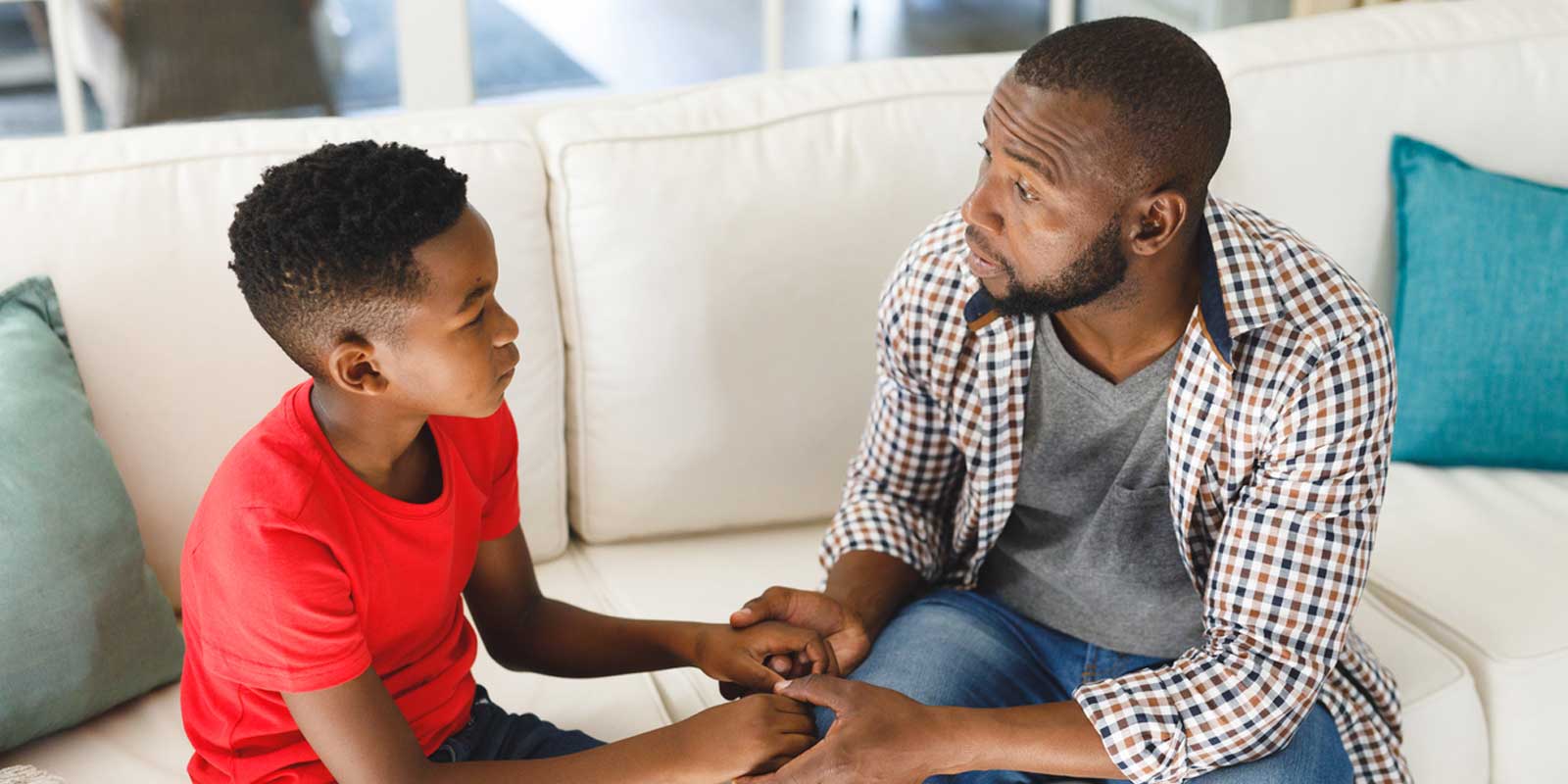
Thinking and talking about the seriousness of climate change can make us all feel anxious and powerless, but remember that these are completely reasonable reactions to the situation. Feel free to say that you also feel worried (if you do). If the conversation gets ‘stuck’ solely on the problem, try to redirect it towards talking about the solutions and finding ways to contribute.
Tip #7: Ask for their ideas
Your child may have lots of good ideas for ways your family can be more ‘green’. Asking for their ideas and putting them into practice if you can will help them feel less anxious, and will also show them how they can influence what other people do.
Tip #8: Get out into nature
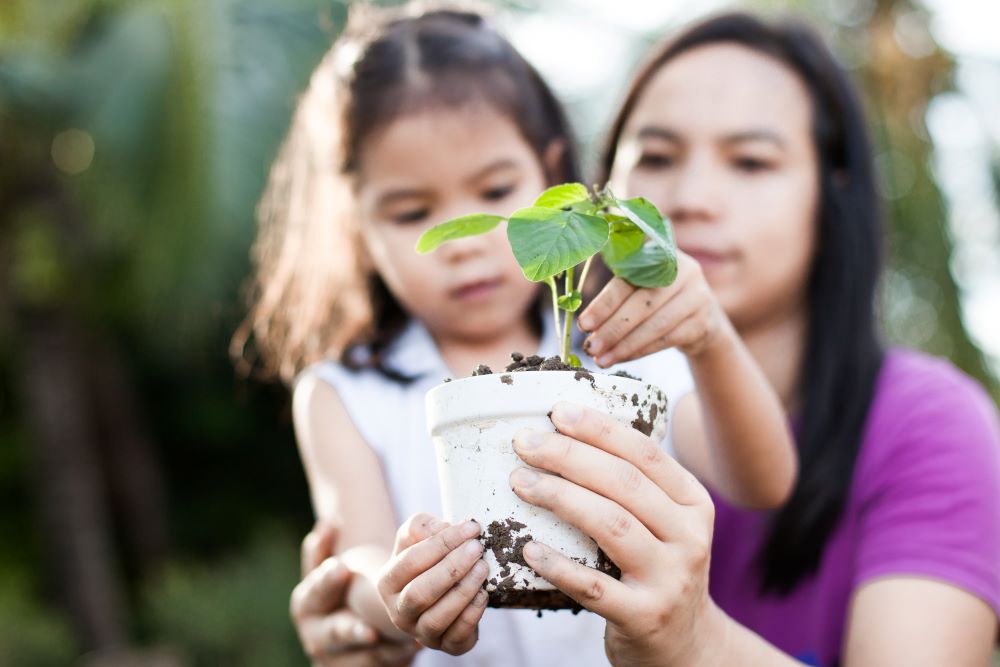
Children (and adults!) benefit greatly from being out in nature. Connecting to nature helps everyone care more about the planet. Think about how you can bring nature into your everyday life. Everything counts: going for a walk in the woods, growing cress on the windowsill or going to a park are all great options. You can find lots more ideas on the Scottish Wildlife Trust website.
Tip #9: Talk to your child's school
It’s a good idea to tell your child’s teacher that you’re talking about climate at home, particularly if your child seems worried about the future. Perhaps you can ask if the school can talk more about the issue, and get students involved in climate action. Many schools take part in programmes such as Eco-Schools.
Top tips for helping the planet
The good news is that helping the planet helps your finances too. Here are some simple steps you can take to help reduce emissions and save money too.
Tip #1: Active travel
Walking, wheeling and cycling instead of travelling by car are great ways of helping to reduce pollution – and they’re good for your mental and physical health too. Win win! Travelling by public transport is also better for the planet than driving in your car.
You can find out more about active travel and travelling by public transport here.
Tip #2: Eating greener
Did you ever scrape a plate of pasta into the bin without feeling even slightly guilty? Or throw away an unused bag of salad leaves? Most of us probably have. After all, it’s food, it’s ‘bio-degradable’, right? What harm can it do? But by wasting food we’re contributing to gas emissions and throwing away money. By planning meals and trying not to waste food, buying food that’s grown locally and eating a diet with lots of fruit and vegetables, you can help reduce gas emissions – and you'll be eating more healthily and saving money too.
You can get more tips for eating greener on the Net Zero Scotland and Love Food Hate Waste websites.
Tip #3: Heat your home efficiently
There are lots of things you can do to make your home warm and save on energy bills. Check out this guide on the Net Zero Nation website.
Tip #4: Reduce, reuse, recycle
Around 80% of Scotland’s carbon footprint comes from all the goods, materials and services which we produce, use and, sadly, often throw out after just one use. Here are some ways you can help:
- Buying reusable items instead of single-use items (like water bottles and dish cloths) usually works out cheaper.
- Recycle things like old clothes and mobile phones instead of throwing them away.
- Shop second-hand instead of buying new – our page on saving money by shopping second-hand has more ideas.
You can find out more about reducing, reusing and recycling on the Net Zero Nation and Zero Waste Scotland websites.
Tip #5: Help inspire other people
One thing you can do with your child is to have a think about what changes you could both make to help the planet, and then share this with someone else, like other family members or friends.
By committing to do something to help tackle climate change and then sharing it with other people, we can create a ripple effect of positive actions that could help the planet and ourselves feel good.
You could use these cute posters from Net Zero Scotland to get some ideas, and then colour them in and put them up in your windows to inspire your friends and neighbours.
There are four free posters to colour, focusing on different things we can do to help the planet:
- Walk, cycle or take the bus to school
- Turn lights and appliances off
- Reduce, reuse, repair
- ‘To help the planet, I…’ (you can add to this poster with the things your family can do)
Tip #6: Celebrate special climate days and events
You and your child can use special events like Scotland’s Climate Week (in September) and Earth Day (in April) to help raise awareness of climate change in your neighbourhood or at school. There are lots of ways to do this, for example:
- You could make a pledge as a family to live more sustainably – it you’re not sure where to start, this quiz on the Net Zero Nation website can help you find actions that work for you.
- You and your child could encourage their school to take part – for example you could suggest they sign up for Keep Scotland Beautiful’s Live Lesson programme.
- If you’re on social media, you could also share ideas there using the hashtag #ScotClimateWeek.
You can find out more about Scotland's Climate Week on the Net Zero Nation website and download social media assets and messages to share here.
More information
For more advice on talking to your kids about climate change and taking action, check out the Our Kids Climate website. You could also watch this webinar, which brings together psychologists, teachers, authors and climate-parent activists to talk about how to support children through a changing climate.
 Activities & Play
Activities & Play Behaviour
Behaviour Childcare
Childcare Development & Growing Up
Development & Growing Up Family, Friends & Relationships
Family, Friends & Relationships Feeding Your Baby
Feeding Your Baby Food & Eating
Food & Eating Health & Safety
Health & Safety Mental Health & Wellbeing
Mental Health & Wellbeing Money & Work
Money & Work Online Behaviour & Safety
Online Behaviour & Safety Pregnancy & First Days
Pregnancy & First Days School & Education
School & Education Sleep
Sleep

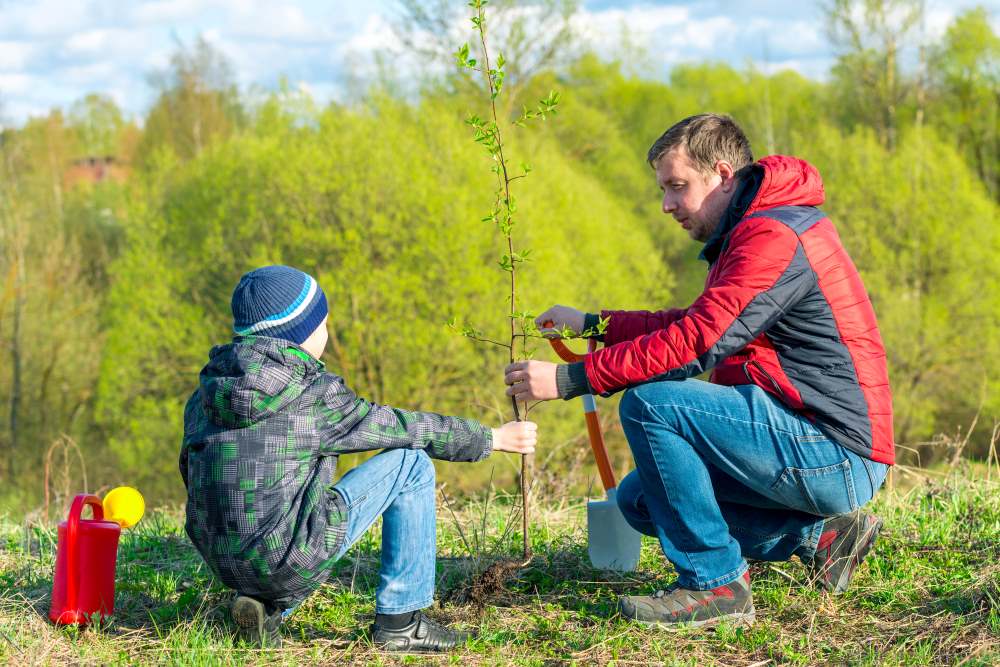

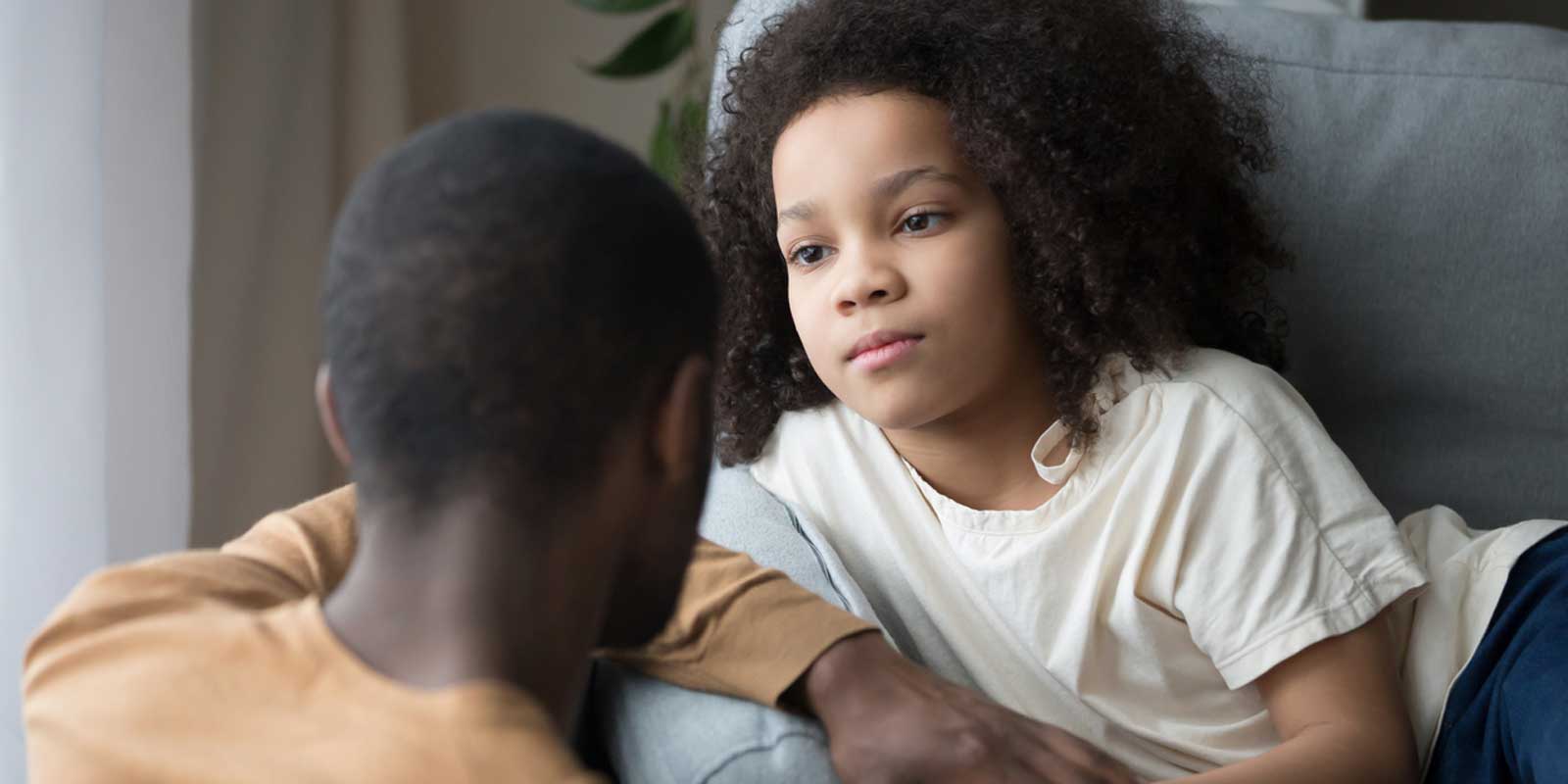

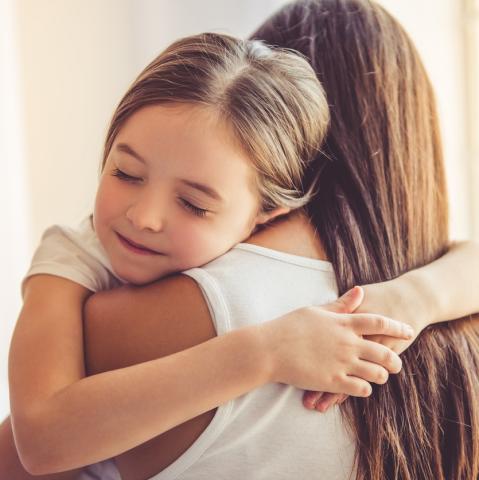
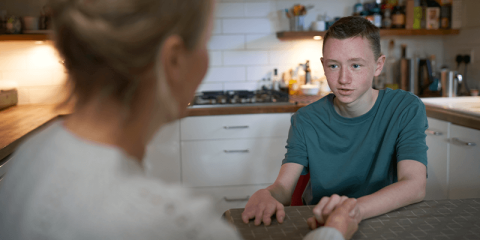

 Behaviour
Behaviour
 Sleep
Sleep